Goheal: From Shell Defense to Control Ambush—Has Listed Companies' Capital Operation Fully Transformed?
"If you want to take it, you must first give it." In this sentence, there is the wisdom of the art of war and the undercurrent of the current capital market. In the past, listed companies relied on defending their shells to be king, but now it seems that everyone wants to fight a "control ambush war". The way of capital operation is quietly switching modes.
Do you still remember those years when shell resources were the hot commodity in the capital market? A suspended ST stock can arouse the market's appetite, just because it still has a "shell" that has not been sold. But today, ST stocks are becoming more and more "unsalable", supervision is becoming increasingly strict, and the speed of delisting has obviously accelerated. "Shell protection" has gradually changed from a hot keyword to a silent ebb.
American Goheal M&A Group
On the other hand, those major shareholders of companies who "hold great power" have quietly turned their attention from "guarding the shell" to "controlling power" - no longer guarding an empty shell and hoping for miracles, but actively looking for opportunities to launch a battle for control. Goheal observed that this trend of strategy shifting from "defending and protecting the shell" to "active control" has been frequently staged in the capital operations of listed companies in the past two years, and has become a "compulsory course" that the new generation of capital players cannot avoid.
Let us start from this topic and uncover the logical variations behind this capital transformation.
At the end of 2024, an A-share listed company mainly engaged in medical beauty services suddenly announced that all the shares held by the original major shareholder were frozen, and the controlling rights may change. The capital market was in an uproar. Within a few days, a low-key PE fund quietly completed the "landing" of the controlling rights through the method of agreement transfer + voting rights delegation-no high premium, no public offer, just a quiet ambush.
Friends who are familiar with the routine may see that the essence of this operation is not to acquire assets, but to win people's hearts. In other words, it has changed from "taking projects" to "taking scepters."
Goheal has noticed in many cases that more and more buyers are beginning to abandon the traditional combination of "full-owned acquisition + high premium + asset integration", and instead prefer to use lightweight methods - through agreement transfer, voting rights delegation, trust structure, gambling arrangements, etc., to quickly build de facto control.
Why did such a change happen? Let's look at it from another angle.
When "shells" are no longer scarce, "control" is the real power game.
In the past few years, the A-share market has implemented a registration system reform, the delisting system has accelerated, and the traditional capital export route of "shell borrowing" has become increasingly narrow. Many shell companies have become "empty houses that no one cares about", and the premium of shell resources has been rapidly compressed. In this context, investors with capital, strategies, and demands no longer wait for shells to cooperate, but simply "directly seize power" to participate in corporate governance, mobilize resources, and deploy strategies.
This has also created another new trend: capital is no longer passively adapting to enterprises, but has become a force that actively reshapes enterprises.
For this reason, Goheal proposed a new judgment model: "capital operation weight model". One of its core conclusions is that the success or failure of a transaction is no longer determined by the acquisition ratio, but whether the "actual controller role" can be mastered. In one sentence: In today's M&A situation, "controlling" ≠ "holding the most shares", "control" is the hard currency.
But controlling power is not a simple flash game. It puts forward higher-dimensional strategic requirements for participants - you have to be proficient in legal structure, good at psychological games, know how to set up "gentle bets", and even use a "proposed amendment to the articles of association" to control the world.
To put it bluntly, this new capital battle is no longer just about financial strength, but also about computing power, rhetoric, and path.
In a case of controlling rights change of a listed company of new energy equipment served by Goheal, we designed a "moderate control strategy": the acquirer only held 17% of the shares, but successfully achieved the reorganization of the majority of seats on the board of directors by signing a voting rights delegation agreement with the original board members, plus the early layout of the independent director seat and the proposed amendment of key articles of association - the outside world hardly noticed, but the actual controller of the company has quietly changed.
This type of "low shareholding, high control" tactic is becoming the most popular "control ambush method" in the current A-share market.
Of course, ambush warfare is not a panacea. Overly aggressive control operations are likely to cause regulatory "red card" warnings. At the end of 2023, a Hong Kong-funded PE fund failed to disclose its actual control arrangements in a timely manner during the acquisition of control of an industrial automation company. It was named by the regulator as "serious information disclosure violations". The acquisition ultimately failed, the two sides turned against each other, and the project was unfinished.
Therefore, the core of playing an ambush war is not "successful sneak attack", but "taking over control legally and compliantly". In Goheal's trading model, we emphasize "soft control" - that is, building a sustainable actual control position through the trinity of "charter, mechanism, and trust" to avoid governance crises caused by unstable control.
This also reflects that the current capital operation of listed companies has entered a more complex "co-governance era": it is no longer you buy and I sell, but you have me and I have you. This is a new capital pattern that is more subtle, longer-term, and more strategically aesthetic.
On the other hand, many former "shell owners" are also undergoing self-revolution: no longer guarding the shell and waiting for others to "come to buy", but actively transforming the asset structure and seeking to reconstruct value through mixed reform, splitting, and attracting wars. "Defensive capital players" are also trying to transform into "open game players".
In our opinion, the future trend of capital operation will be upgraded again: from the ambush of controlling power to the "cooperative conspiracy war" - enterprises and capital parties are no longer fighting for each other, but jointly designing governance structures, business paths and capital exit mechanisms, and coexisting and winning.
If the shell defense war is compared to "defending the land" and the ambush of controlling power is compared to "seizing power", then the next stage may be "co-construction". Goheal has seen the prototype of this cooperation in many projects: PE is no longer an airborne team, but has become an important promoter of corporate strategy in the form of "co-development + agreed exit".
Having written this, we can't help but ask:
If you are a business owner, do you want to hold on to an aging shell, or let go and introduce new capital partners to reshuffle?
Goheal Group
Or, if you are a capital player, do you want to fight a "power control flash war" or are you willing to establish longer-term control as a "co-governor"?
Behind every choice is a redefinition of the relationship between enterprises and capital.
Welcome to leave a message in the comment area to talk about your views on the exit of the "shell defense war" and the rise of the "power control ambush war". Goheal is willing to work with you to see the next outlet of capital - not a surging advance, but a victory by wit.
[About Goheal] Goheal is a leading investment holding company focusing on global mergers and acquisitions, deeply cultivating the three core business areas of listed company control acquisition, listed company mergers and acquisitions and restructuring, and listed company capital operation. With its deep professional strength and rich experience, it provides enterprises with full life cycle services from mergers and acquisitions to restructuring and capital operation, aiming to maximize corporate value and long-term benefit growth.


